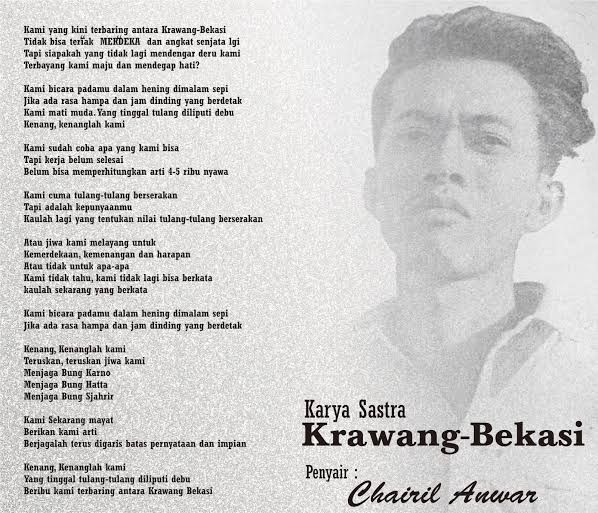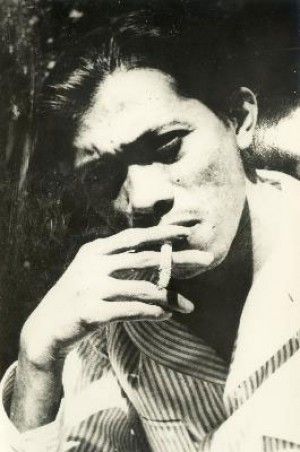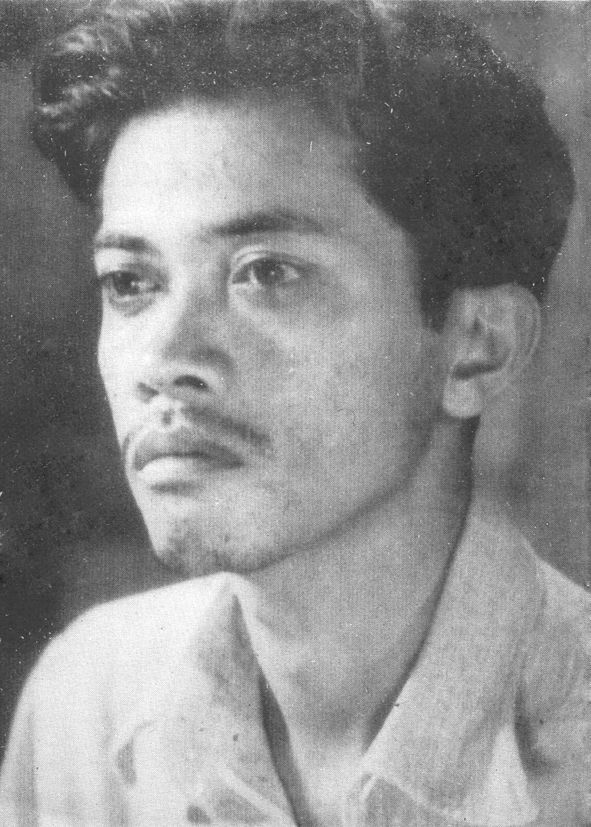
In December 1945, Lieutenant Colonel Alex Evert Kawilarang was assigned to the TKR Headquarters in Jakarta to manage the exchange of prisoners of war between the Indonesians and the British. One of the prisoners exchanged was Chairil Anwar, the nephew of Prime Minister Sutan Sjahrir who later became known as a great poet.
It is not yet known how Chairil was captured by the British military. What is clear is that after being released by Kawilarang at Jatinegara Station, he was then active again in joining his friends at the Indonesian Youth Alliance (API). When he followed his friends to move to Karawang in 1947, Chairil witnessed firsthand how the Dutch military killed his countrymen. He was secretly angry and hurt.
"After returning from Karawang, the poem Krawang-Bekasi written," according to Sjuman Djaya in his book entitled Aku.

Krawang-Bekasi was first read in an evening chat between poets and literary enthusiasts at a shop located in Pasar Senen. According to J.C. Princen in his autobiography, Freedom to Choose, he recalls that at that time he was present and listened to the poem.
"The poem is very good..." Princen said.
Chairil was quite familiar with Princen. He also knew that the Dutch soldier secretly sympathized with the independence struggle of the republicans, so he might think that the young Dutch were 'easy targets' to become objects of his propaganda.
But not only praising, Princen also criticized Chairil Anwar's position which he considered 'not responsible enough' for his nationalist attitude. He mocked that Chairil could only “be comfortable sitting at home" writing and handing it over to someone else to complete this heavy work.
"Are you guys really that great at not fighting?" challenged Prince.
Of course, Princen's naughty statement was met with indignation by Chairil and his fellow republicans. They also criticized the soldier who seemed to feel quite comfortable just by having sympathy for the struggle of the republicans.
"If you really knew better, what are you doing here now? Are you better than the Japanese or the Germans?" Chairil replied in a sharp tone.
"If I can't do anything else, then I'll be actively on your side, because I think you guys are right," said Princen.
"Does this mean that you will become the enemy of your comrades, the Dutch?" asked Chairil again.
"Aren't you all my friends? Is a dead Dutchman worse than a dead Indonesian?" Prince replied.
Suddenly all fell silent. The debate between Princen and Chairil ended just like that. Everything became normal again and quickly dissolved in coffee and cigarettes. Long after the 'debate at the Pasar Senen', on April 28, 1949 Chairil Anwar died at the age of 27. Doctors who examined him cited complications as the cause of his death.

When his funeral was held, Princen was no longer in Jakarta. Fulfilling his promise to Chairil and his fellow artists at Pasar Monday, he has joined the Siliwangi troops, taking part in fighting with the Indonesians in the forests of Sukabumi and Cianjur.
** Your post has been upvoted (11.86 %) **
Curation Trail is Open!
Join Trail Here
Delegate more BP for bigger Upvote + Daily BLURT 😉
Delegate BP Here
Upvote
https://blurtblock.herokuapp.com/blurt/upvote
Thank you 🙂 @tomoyan